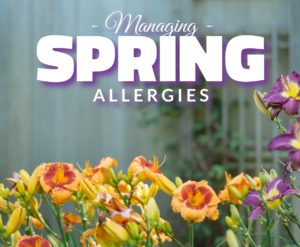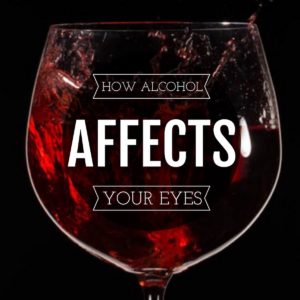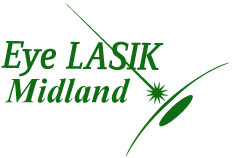
by EyeLASIK | Apr 25, 2017 | Health Facts, Seasonal Tips & Tricks

March winds, April showers, and May flowers are all beautiful indicators of warmer weather and the end of winter. However, those things also have another thing in common. Though it is dependent on region, spring is often labeled as the worse season for allergy sufferers. Read on for tips from the EyeLASIK team on managing spring allergies.
Know Your Triggers
Some people are allergic to everything. However, it’s important to know what is actually triggering your allergy attacks. You can wing it based on past experiences or you can meet with an allergist who can conduct various testing. The testing, while time-consuming and (literally) irritating, can help you more effectively combat your allergies.
Protect Your Home
Simple solutions can help you to preventatively manage your spring allergies. Here are some easy tips that can keep irritants and allergens out of your home.
- Remove shoes at the door before walking through your home.
- Frequently change out your air conditioning/heating filters.
- Use a good quality vacuum with a HEPA-filter.
- Bathe furry family members often, particularly indoor/outdoor pets.
- Opt for a minimalist look by tossing dust-collecting pillows and upholstered items.
- If possible, choose tile, stone, or wood flooring, as carpets can be allergen gatherers.
- Clean your house! Scrub kitchens, floors, and bathrooms regularly.
- Toss the houseplants, particularly those that pollinate!
- Wash towels, sheets, blankets, and stuffed animals regularly.
- Use the air conditioner, which passes air through a filter, instead of fans.
- Keep windows closed (even those spring breezes can be so nice).
- Stay indoors on high allergen count days (check your local weather).
Prevent Attacks
Medication is one of the easiest ways to manage allergy symptoms. For many people, over the counter antihistamines can easily help allergy sufferers cope with seasonal attacks. However, some severe sufferers may need prescription medications. Be sure to talk to your doctor about eye drops, nose sprays, and oral medications that can help make spring allergies a bit more bearable.
When You’re In The Throes Already
Sometimes, all preventative measures in place, allergies happen. Here are a few suggestions on how to easy the suffering:
- Take a shower. The steam can help relieve the tenderness of sore eyes, ears, and throats.
- Drink plenty of clear liquids. We know, we know…this is the medical solution for everything, right? However, it’s important to stay hydrated. Hot tea works wonders, too.
- For eye allergies, keep your face clean. Washing your face regularly keeps allergens from your face.
- Additionally, you can ease eye allergy pain and irritation by applying a cool compress to your face for several minutes.
Though we can’t fix your eye allergies for you, we can correct your vision with LASIK. Be sure to set up your complimentary consultation so you can see clearly…well, unless you have watery allergy eyes.

Enjoy The Scenery Without The Sneezing

by EyeLASIK | Apr 11, 2017 | Eye Facts, eye health, Health Facts
April is Alcohol Awareness Month. Part of our job as healthcare providers is to help educate our patients about their vision health. Read on for more information on how alcohol affects your eyes, over the short- and long-term.
How Alcohol Affects Your Eyes: Short-Term
Everyone has had one of those weeks where nothing goes right. All you can think about it making it to Friday, so you can head to happy hour. However, it’s important to not throw caution to the wind when winding down with a few drinks. In addition to other side effects such as slurred speech, reduced reaction time, and lowered inhibitions, alcohol can impact your vision, too. Short-term effects of drinking too much can include blurry vision and disorientation. Keep in mind that the more you drink, the more likely these side effects will occur.
How Alcohol Affects Your Eyes: Long-Term
For heavy drinkers, the vision side effects of alcohol are amplified. The liver acts as the body’s filter for toxics. Over periods of heavy alcohol intake, the liver function is reduced. Alcohol prevents the liver from absorbing vitamins needed for healthy eyesight, including vitamins A and B-1.
Vitamin A helps with a whole host of health benefits. When the body stops absorbing it properly, your eyes are impacted. Symptoms include corneal thinning and tearing, night blindness (being unable to see in dark lighting), and possibly blindness.
Healthy muscle function is one of the benefits of Vitamin B-1. When the body stops absorbing this essential vitamin, the muscles surrounding the eyes become weakened. In some cases over long periods of use, it can even cause paralysis.
As we previously discussed, age-related macular degeneration (or AMD) is an incurable disease, which can lead to blindness. The American Optometric Association has identified heavy alcohol use as a risk factor for AMD.
EyeLASIK Midland wants to encourage you to drink responsibly. Although an occasional beverage is enjoyable, be sure to find alternative ways to de-stress or have fun without overindulging.

Please enjoy responsibly.

by EyeLASIK | Mar 7, 2017 | eye health, Health Facts
 Most tired people immediately reach for caffeine as a boost to their energy throughout the day. Though the pros and cons of caffeine have been well documented throughout the years, we’re here to explain how caffeine affects your eyes. So grab a cup of (decaf) tea and read on for more.
Most tired people immediately reach for caffeine as a boost to their energy throughout the day. Though the pros and cons of caffeine have been well documented throughout the years, we’re here to explain how caffeine affects your eyes. So grab a cup of (decaf) tea and read on for more.
What Is Caffeine?
Caffeine is a chemical found naturally in over 60 plants. It is considered a nervous system stimulant, giving the body a “jolt” of energy within 30-45 minutes after consumption. It is found is beverages such as coffee, tea, and energy drinks and even in foods, like chocolate.
How Caffeine Affects Your Eyes
As much as we love getting the boost of energy from caffeine, there are several ways how caffeine affects your eyes.
Increased Glaucoma Risks
According to a new study, people who consumer 3 or more cups of coffee each day increase their risk of developing certain types of glaucoma. However, the study couldn’t conclude that other sources of caffeine had the same results. Do you need to give up the cup of Joe? Not really. A cup or two daily won’t be enough to increase your risk, though it’s important to be aware of how much you’re consuming.
Blurry Vision
Though only in serious cases of potential caffeine overdose, blurred vision is usually the result of a blood sugar drop or rise. It’s important to keep a careful eye on sudden changes in your energy levels, as it could be indicative of another health issue. Caffeine overdoses, which can occur when over 1,000mg of caffeine are consumed within 24 hours, can also cause blurry vision. If you suspect a potential overdose, you should consult a healthcare professional immediately.
Twitchy Eyes
Have you ever experienced twitchy eyelids after drinking several cups of coffee? It’s definitely a side effect of consuming too much caffeine. Avoid the twitch by avoiding too much caffeine.
We hope today’s blog on how caffeine affects your eyes gave you an awakening jolt! Treat your eyes (and the rest of your body) well by taking your caffeine in moderation.

by EyeLASIK | Feb 21, 2017 | eye health, Health Facts, Uncategorized
 We know it’s technically a little early for it to be considered spring, but the weather has been so nice lately, we had to take advantage. We have some spring cleaning tips for eye health to help you get started to a bright (almost) March.
We know it’s technically a little early for it to be considered spring, but the weather has been so nice lately, we had to take advantage. We have some spring cleaning tips for eye health to help you get started to a bright (almost) March.
What Is Spring Cleaning?
Traditionally speaking, spring cleaning is thought to have originated with Jewish Passover practices. For seven days prior to Passover, practitioners abstain from consuming all food products leavened with yeast, including crumbs. This custom requires a thorough house cleaning, from top to bottom. Since Passover falls in the spring, the birth of “spring cleaning” traditions began. In more modern times, it’s often an opportunity to give one’s house a full scrubbing after the long winter months.
Spring Cleaning Tips For Eye Health
If you decide to give your house a cleaning overhaul, be sure to follow these tips that also have eye health benefits.
Dates Are Important
Organize your medicine cabinet and throw away any expired products. These products can include old contact storage containers, saline solution, and other eye health products. However, do not flush any medications down the toilet, as it can contaminate water supplies. We recommend contacting your pharmacist or local law enforcement to inquire about recommended medication drop off locations.
Dust Everything
A thorough dusting of your home can help to prevent eye allergies and irritation. As you know, springtime is generally considered the worst time of year for seasonal allergies. We recommend changing out your furnace/air conditioning air filters, carefully dusting every surface, and resealing doors and windows to prevent what’s outside from coming in.
Donate Old Eyewear
Have you already had LASIK? Great! We’re so happy that you’re seeing clearer than clear. However, we’re guessing you probably have lots of old glasses and sunglasses around. Instead of throwing away the expensive frames, contact your local Lion’s Club. Part of their charity work include collected gently used glasses to donate to those who cannot afford them.
Don’t Forget The Floors
Carpets and rugs are one of the biggest eye allergen offenders. They collect everything, including pollen, dust, and pet dander. Be sure to vacuum your floors frequently. As part of your spring cleaning efforts, you may also consider renting a carpet steam cleaner to handle a heavy duty scrubbing. Your eyes will thank you for it!
We’re reveling in this beautiful (not quite) spring weather. However, we’re happy to stay inside to help our patients with their complimentary LASIK consultations. Set yours up today.

by EyeLASIK | Nov 15, 2016 | eye health, Health Facts
Eating well and regular exercise are a big part of a healthy lifestyle. However, have you ever given any thought about the nutrients for good eye health? We’re here to fill you in on the foods and supplements you should be taking to boost your vision.
Vitamins

Foods & supplements can promote healthy eyes.
Did you know that there are vision health-specific vitamins and supplements available? It’s true! Often, many people do not get the right dosage of vitamins required to maintain proper eye health.
Many diseases, especially those caused by aging, can be minimized and prevented through diet and regular vision checkups. However, be sure to speak with your doctor about any supplemental vitamins you are taking. This is especially important if you are taking any other prescriptions. Surprisingly enough, some supplements might counteract the benefits of other medications, even with your realizing it.
Prior to starting a new supplement schedule, be sure to check the label of your existing multivitamin. There’s a good chance you’re already receiving all the vitamins you need. However, we’ve listed out the daily recommended dosages for these vitamins and minerals for easy reference:
- Vitamin C-250 mg
- Vitamin E-200 mg
- Zeaxanthin-500 mcg
- Selenium-100 mcg
- Zinc-25 mg
- Beta-carotene-5,000 IU
- Folic Acid-800 mcg
- Lutein-10 mg
- Selenium-100 mcg
- Calcium-500 mg
- Thiamin-2 mg
- N-acetyl cysteine-100 mg
- Alpha Lipoic Acid-100 mg
Food
Some of these necessary vitamins and minerals occur naturally in the foods we eat. Unfortunately, many of them aren’t found in our favorite foods, like pizza or tacos. A healthy, balanced diet filled with fresh produce, whole grains, and lean proteins helps you reach your daily vision vitamin goal. However, if you’re still looking for a big boost, check out these food options:
- Lutein and Zeaxanthin – Found in dark leafy greens (specifically kale and spinach), colorful vegetables, and eggs
- Zinc – Eat beef, lamb, turkey, quinoa, or lentils for a big boost of zinc to your diet
- Omega-3 Fatty Acids – Dive under the sea and enjoy salmon, trout, tuna, oysters, and other various seafood for natural omega-3’s. However, many dairy and grain products are enriched with these fatty acids during processing.
- Vitamin E – The leafy greens for the win! Choose Swiss chard, mustard greens, and spinach for more vitamin E. However, you can also reach for avocados, almonds, or olives if you’re not a big fan.
- Vitamin C – You can reach for just about any citrus fruit, or opt for papaya, Brussels sprouts, broccoli, cauliflower, or strawberries.
Not only are these nutrients good for healthy eyes, they’re good for overall health, too. We hope that this holiday season, you’ll consider serving some of these eye-healthy foods at your big dinner.

by EyeLASIK | Feb 15, 2016 | Health Facts

Wear your shades!
Everyone has heard that 80’s song, “The Future’s So Bright, I Gotta Wear Shades.” They aren’t wrong either! Even though we’re technically still in February, there are lots of benefits of great sunglasses, all year through…and Eye LASIK is here today with some of them!
Keep Your Squinting At A Minimum
Bright lights and sun glare can cause you to squint, which is your body’s natural instinct to help protect your eyes. However, while you’re squinting, your eyes will strain in order to be able to see properly. It’s important to rock out some great sunglasses to prevent this issue. Another added benefit of reducing squinting is that it prevents crows’ feet and wrinkles around the eyes!
Divert The Debris
West Texas has crazy weather, with changes from moment to moment. There’s always a lot of dust, pollen, and other things blowing around in the crazy wind storms…and sunglasses can help prevent a good portion of that from getting into your eyes! This debris not only causes irritation, but it can also cause scratches to your eyes or infections if your eyes aren’t properly flushed out.
Say Bye-Bye To Dry Eye
Wearing shades can significantly reduce the possibility of dry eyes. Dirt and other environmental conditions such as sun, snow, or wind can be a big contributing factor to dry eye. Not producing enough tears can be very detrimental to your eyes and can cause scratches and further irritation. Sunglasses prevent a great deal of these irritants from even entering your peepers.
Best Of All…You Look Awesome
Sunglasses are a great accessory! Not only are they a great way to keep your eyes protected, they can make you look polished and finish of your look. From aviators to cat eyes, wayfarers to oversized shades…sunglasses provide safety for your eyes and an excellent fashion tip.
While we’re currently in the in-between for seasons, Eye LASIK encourages you to wear sunglasses year-round! Protect your peepers and rock your outfit with some great shades!







 Most tired people immediately reach for caffeine as a boost to their energy throughout the day. Though the pros and cons of caffeine have been well documented throughout the years, we’re here to explain how caffeine affects your eyes. So grab a cup of (decaf) tea and read on for more.
Most tired people immediately reach for caffeine as a boost to their energy throughout the day. Though the pros and cons of caffeine have been well documented throughout the years, we’re here to explain how caffeine affects your eyes. So grab a cup of (decaf) tea and read on for more.


